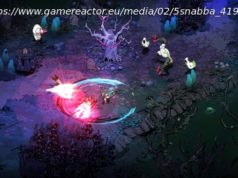At Oktane 2025 in Las Vegas, Okta CEO Todd McKinnon describes AI security and identity security as inseparable as he tees up a series of new agentic security innovations.
At Oktane 2025 in Las Vegas, Okta CEO Todd McKinnon describes AI security and identity security as inseparable as he tees up a series of new agentic security innovations.
At its annual Oktane customer conference in Las Vegas, Nevada, identity and access management specialist Okta has been expanding its vision to be a first-port-of-call when it comes to securing non-human identities (NHIs) as a swelling wave of artificial intelligence (AI) agents causes their numbers to swell dramatically.
Among the announcements made today are new capabilities within both the Okta and Auth0 platforms that the supplier said will enable users to integrate AI agents seamlessly into their identity security fabrics.
A study released earlier in 2025 by Okta revealed that although 91% of organisations were already deploying agentic AI in search of productivity gains, but also that just 10% of organisations are today putting any form of cyber governance in place to manage agents – so Okta believes the risk is also rising, and fast.
Such risks are no longer theoretical; Okta cited incidents such as the now infamous breach which an AI bot built on the Paradox AI platform and used by fast-food giant McDonalds in its hiring process exposed the personal data of millions of job applicants to hackers who correctly guessed that its password was ‘123456’.
Okta CEO Todd McKInnon compared unleashing AI agents on an organisation’s environment to creating a lot of individual new insider threats.
“AI agents are a powerful new identity type. They can act independently, on their own or on behalf of a user or a team or a company,” said McKinnon. “They can access tools, apps or data, they can plan or complete tasks on their own. The pace here of innovation is absolutely stunning.
“These AI agents and the potential here, are getting very, very powerful and it’s happening very quickly.






